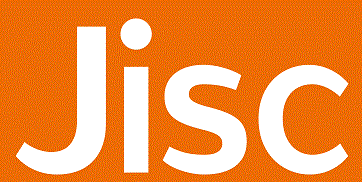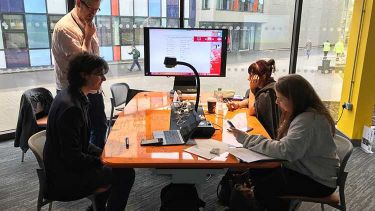
A Times Higher Education and Jisc roundtable discussion explored the role of AI with the teacher
In July, the University of Glasgow hosted the inaugural Times Higher Education Teaching Excellence Summit – the first THE summit dedicated to celebrating achievement, innovation and success in teaching.
On the programme was a roundtable organised by THE in association with Jisc, a membership organisation providing digital solutions for UK education and research. Leading figures in higher education met to address questions about the role of artificial intelligence (AI) and learning analytics in the teaching and learning experience. It was co-chaired by John Gill, editor of Times Higher Education, and Steve Masters, group chief technology officer at Jisc.
Jisc has launched the world’s first national learning analytics service, which has shown the potential to enhance student success, wellbeing and retention in its pilot phase. In addition to the UK-wide service, a collaboration with Welsh universities will allow anonymised insights from the data to be analysed at a national level. But in a data-heavy sector where issues such as consent are still rightly a concern, what is needed to secure wider adoption so that learning analytics can benefit teaching, learning and the student experience?
The issue of disparate systems proved to be a central topic: how universities struggle to link up the various tech solutions they use. “This is an issue we need to tackle,” said Anton Muscatelli, principal and vice-chancellor at University of Glasgow. “As an organisation, we have to keep buying systems that are very poor at interoperability and we have to spend a lot of time trying to put them together. Why is it that the consumer market is well-served in this area and we are not?”
Steve Masters agreed that the higher education sector was suffering from the lack of easy-to-integrate services. He argued that, with the emergence of hundreds of new edtechs, a strategy of bi-modal adoption was the only way forward. “If you’ve got 20 edtechs that do the job that two or three old institutional learning systems used to do, how do you consume those 20? How to you balance the old with the new?”
“We need to cross the abyss between our competing systems and the single supporting system,” said Jackie Labbe, pro vice-chancellor (academic) at De Montfort University. “And when that happens, we need cultural change and training, so that staff understand that is an improvement, not another burden.”
Frank Coton, vice-principal (academic and educational innovation) at University of Glasgow, agreed there was very little thought given to the totality. “The higher education sector is lagging behind because our primary focus is on education and teaching – that’s where we put our intellectual capital. For everything else we look to vendors to provide.”
Some believed this was the wrong question to be focusing on. “I think when we’re talking about data analytics and AI, rather than talking about what the system is going to be, we need to talk about data and who owns that data,” said Sheila MacNeill, senior lecturer in digital learning at Glasgow Caledonian University. “We need to be educating our staff and students around data and how it can be used. That’s where education can have a real impact.”
There were big gains to be had from using data properly, said Duncan Ross, data and analytics director at THE, introducing two terms: “data exhaust” and “data commons”. He explained the former as data generated in the everyday process of doing business. “In learning, you could use this data to see where students were stuck at a certain point on an online test, and then see who else was stuck and how they got past this.” Whereas “data commons” could be used to build up a dataset across UK institutions, perhaps to create AI to address specific problems.
Frank Coton cautioned that it was important to be careful when making inferences around data – for example, a book being left open on a certain page may simply mean a student has gone for a coffee.
The discussion moved on to ethical issues and the potential unintended consequences of predicating outcomes models that might affect student behaviour. Take the example of learning analytics dashboards, said Brian Green, deputy associate principal responsible for learning and teaching at University of Strathclyde. “They can be useful, if you’re a programme leader, to give an indication of how engaged a student is – and possibly lead to an intervention. But it is too difficult to come up with robust predictions and too easy to fall into the trap of labelling students.”
These ethical questions are the same that have been faced by universities for many years, highlighted Mark Simpson, pro vice-chancellor (learning and teaching) at Teesside University. “The danger is that debates tend to go down the road of ethics and data control and lose focus of the huge benefits. If we don’t focus on the benefits we will get left behind.”
Sheila MacNeill asked: “Are we talking about improving teaching and learning, or improving the management of the business of education? If it’s the latter, I’m not interested.” Frank Coton said he didn’t believe it was possible to improve one and ignore the other. He argued that making improvements in the business of higher education would make more space for colleagues to focus on improving learning and teaching.
Jackie Labbe argued that AI wasn’t yet being used to its full capability in the education sector. “Many of us are using technology to do the same things that we’ve always done, but just on a technological platform,” she said. “We haven’t yet figured out what we can do that’s different as a result of the technology.”
For Jason Miles-Campbell, head of Jisc Scotland and Northern Ireland, the most exciting aspect of AI was the opportunity it presented in terms of getting access to our universities from outside our student bodies – “and how AI can take the interaction with education as a whole to a new level”.
It was agreed there was a need to give teaching staff more time and space to develop and implement change. It was also said that co-design with students and staff was crucial when developing tools to assist the education experience and that conversations should be data-informed rather than data-driven.
www.jisc.ac.uk/learning-analytics
The Panel
John Gill editor, Times Higher Education (co-chair)
Steve Masters group chief technology officer, Jisc (co-chair)
Frank Coton vice-principal (academic and educational innovation), University of Glasgow
Brian Green deputy associate principal responsible for learning and teaching, University of Strathclyde
Jackie Labbe pro vice-chancellor (academic), De Montfort University
Sheila MacNeill senior lecturer in digital learning, Glasgow Caledonian University
Jason Miles-Campbell head of Jisc Scotland and Northern Ireland
Anton Muscatelli principal and vice-chancellor, University of Glasgow
Duncan Ross data and analytics director, Times Higher Education
Mark Simpson pro vice-chancellor (learning and teaching), Teesside University
















